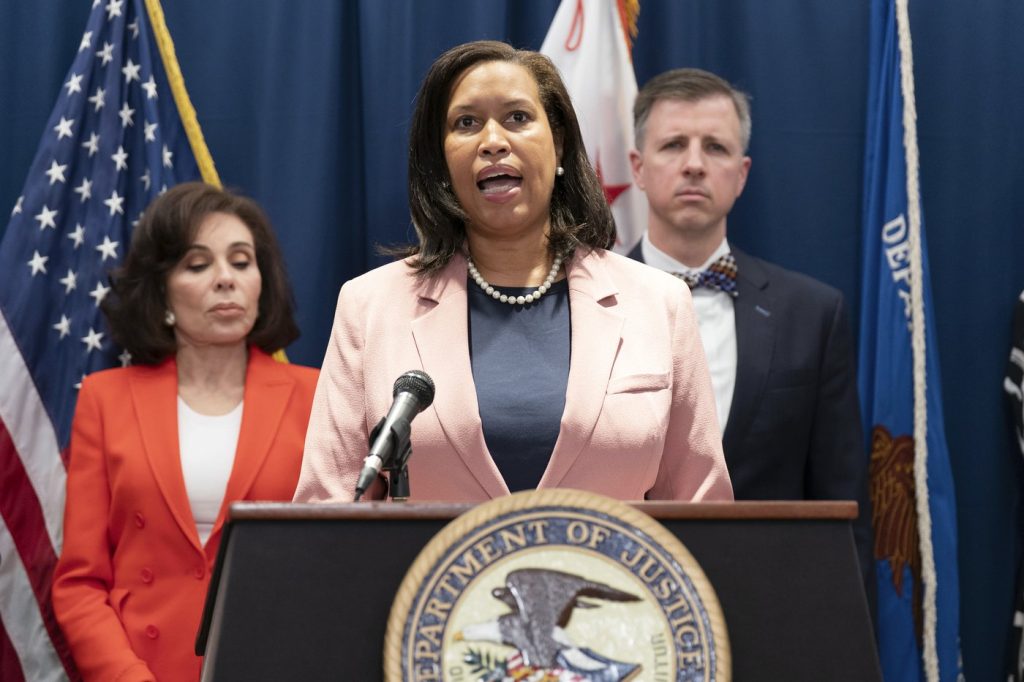In the early hours of Friday, around 2 a.m., U Street in Washington, D.C. was bustling with noisy revelers leaving clubs and bars, many in search of late-night food. The usual presence of Metropolitan Police Department cruisers was noted, but there was no sign of the increased federal law enforcement deployment that President Donald Trump had promised to initiate starting at midnight.
Trump had announced a "security lockdown" aimed at taking control of the streets of D.C. for seven days, with the option to extend. However, a night tour around the city revealed that the promised federal law enforcement surge, which included agencies like the Secret Service, FBI, and U.S. Marshals Service, did not materialize as expected. Instead, the scene appeared to be typical for a Friday night in the district.
On Friday night, a White House official indicated that operations initiated Thursday involved arrests related to two stolen firearms, suspected fentanyl, and marijuana possession. More than 120 federal officers were reportedly on duty as part of the heightened presence, marking a potential increase in the number of federal law enforcement involved.
The recent catalyst for Trump’s call for federal intervention was an assault last weekend on Edward Coristine, a notable member of the Department of Government Efficiency, during an attempted carjacking by teenagers. This incident resulted in arrests of two 15-year-olds, with authorities still pursuing other suspects. Following this incident, Trump reiterated his stance for federal control, stating that if the District of Columbia does not improve its management of crime, he would take further actions, potentially considering repealing Washington's limited "home rule" autonomy or deploying the National Guard.
Notably, Mayor Muriel Bowser has remained silent regarding Trump’s latest declaration. The MPD has also not issued any statements. Despite recent criticism, Bowser's administration can claim a reduction in certain crime rates, particularly homicides and carjackings, which had seen a troubling spike earlier in 2023.
As for juveniles, over 50% of those arrested for carjacking are underage. In response to increasing disturbances caused by unruly teenagers, the D.C. Council has passed emergency legislation enforcing stricter curfews and allowing the police chief to designate temporary juvenile curfew zones where gatherings of young people after 8 p.m. are prohibited.
Within his legal rights, Trump can deploy federal law enforcement in D.C., as previous presidents have done. The National Guard could also be called upon, although they were not explicitly listed in his current deployment plan. Historically, the Trump administration has employed such measures during significant protests and emergencies in the past.
However, taking control over the police department or enforcing a full federal takeover would require a state of emergency declaration, which could face judicial challenges. Such moves have aligned with Trump’s broader strategy of governance through executive orders, which have been invoked in various contexts, from border protection to imposing economic sanctions.
A full federal takeover would likely require Congress to repeal the Home Rule Act of 1973, a significant step that may garner opposition. This act has allowed D.C. residents to elect local officials, contrasting with other regions that maintain representation in state legislatures. Trump's administration has already affected certain operations, like increasing the National Park Service's enforcement against homeless encampments and public marijuana use in federal park spaces.
With Trump’s criticisms of the city's governance and safety becoming more pronounced, the actions taken by federal and local agencies reflect a complicated relationship between the city's leadership and the federal authority centered in Washington, D.C. The situation remains fluid, with the potential for further developments as law enforcement agencies navigate the ongoing challenges in the capital.











